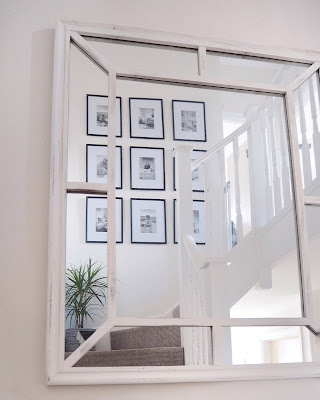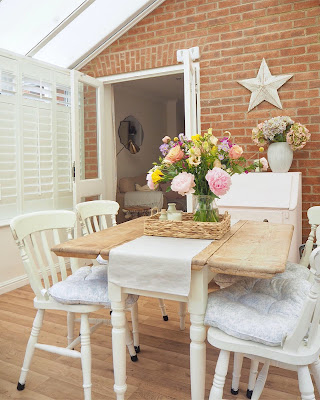If you’re like me and live in a dimly-lit home, these dark winter months are never fun. I find that my mood, and therefore my mental health, is always affected this time of year - there's something about leaving home in the dark, and getting back in the dark that always leaves me feeling flat.
Maximising natural light is so important to tackle this - sunlight boosts Vitamin D and serotonin levels, which work to boost your mood. But once those nights start drawing in it can be difficult to keep rooms feeling bright and airy.
There are, however, things you can do to increase natural light in your home, so here are my top five tips:
Maximising natural light is so important to tackle this - sunlight boosts Vitamin D and serotonin levels, which work to boost your mood. But once those nights start drawing in it can be difficult to keep rooms feeling bright and airy.
There are, however, things you can do to increase natural light in your home, so here are my top five tips:
Make the most of your windows
It goes without saying that the larger your windows, the more light you’ll get coming into your home. However, if you’re not blessed with big beautiful windows, maximise the light you are getting by keeping curtains and drapes light - heavy materials will block the light, so stick to lightweight materials.
Install a skylight
Consider installing a skylight into rooms such as bedrooms, particularly those with small existing windows. Skylights might seem like a small addition, but that additional natural light will make a huge difference - especially first thing in the mornings when getting up feels a real chore. |
| Image credit: Pilkington UK |
Keep
windows clean
Probably an obvious one, but it needs mentioning – keeping your windows super clean will maximise your light even further. If you have any skylights or a conservatory in your home, self-cleaning glass is available (yes that’s a thing!), such as Pilkington Activ™. A great choice for hard-to-reach windows or any large glazed spaces in your home. The glass has a special exterior coating that reacts with daylight to breakdown organic dirt and as the coating hydrophilic rain sheets down the glass to help wash the loosened dirt away., This glass means you won’t have to worry about cleaning those hard to reach outdoor areas and the sun will shine through all year round.
Use strategically placed mirrors to your advantage
A well-placed mirror will reflect natural light so place one opposite a window to ensure light can be bounced around the room. All reflective surfaces will do this too, so working mirrored decor into any particularly dark rooms can also be helpful.
Keep colours light
Dark flooring will absorb a lot of the light coming into your home, so consider lighter coloured flooring such as tiles or vinyl, or even paint your floorboards white to brighten up a room. The same can be said for your walls – lighter colours will always make a room look brighter, however if you’re a fan of beautiful dark shades, why not go light with your furniture instead? Heavy, dark-coloured pieces will again absorb light, so counteract your dark walls with brighter furniture.
Make your windows work harder
Make sure the windows you have are working overtime to do everything they can to let as much light in. If you’re looking to replace your windows consider a glazing that will maximise natural light – for example Pilkington energiKare™ double glazing, uses a low-iron glass which allows through higher levels of light. Not only that, but you’ll also be getting more solar heat too – perfect for tricky areas such as north-facing conservatories like mine, which could always benefit from some extra warmth in the winter.
Do you notice your mood is lifted with sunlight? How do you tackle this during the dark winter months?
Thanks for reading,
Sam Xx
Thanks for reading,
Sam Xx
*This post has been sponsored by Pilkington United Kingdom Limited, however as always, all the words and opinions are my own*






No comments
Post a Comment